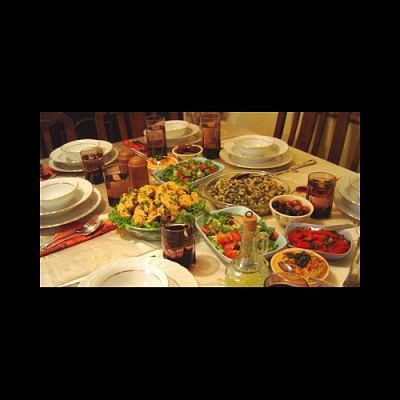What to do, and not to do during Ramadan
During Ramadan, our daily routines are broken and aligned anew. This can lead to choices which are certain to be unhealthy in our dietary practices. Follow these guidelines and don’t let Ramadan lead to compromises with your health and fitness.
What to do:

We should always keep ourselves neat and clean during this time as it will keep us fresh and help us get rid of stress. We should always wash our hands properly before having meals.
2. Have fibre rich food
Food with high fibre contents, such as brown chira, wholemeal bread, or raw grams should be in the menu as they contain complex carbohydrates which take time to digest and can provide energy, and at the same time keep the digestive tract healthy. It can also prevent weight gain and constipation.
3. Have food prepared at home
It is a common tendency to go out for the common Iftar items prepared outside like ‘beguni’, ‘piyaju’, ‘aloo chop’, etc. or the highly publicised items such as ‘boro baa per polay khay’. But such items are not healthy for us as they are prepared outside and are

What not to do:
1. High sugar food
Food with high sugar content have high calorie and will cause the body to gain weight, so it is advised to avoid such food, particularly for adults.
2. Spicy and oily food
Spicy and oily food may cause complicacies with digestion and acidity. For adults, oily food should be avoided as they cause gain in weight and are not healthy for heart.
3. Eat meat
In order to provide the necessary proteins for our body, doctors advise us to have fish instead of meat, particularly red meat like beef or mutton. Meat contains high calories and fat which are not healthy for our body as they cause gain in weight and increase risk for heart patients. They are also prepared with spicy and oily ingredients which may cause complicate digestion and also cause acidity. On the other hand, fish are rich in proteins but less in fat, and fish oil is good for health. They are also prepared with less spices and oil and so are safer to consume. Adolescents may have chicken prepared with less spices and oil, and avoid red meat as much as possible.
4. Salt
For adults, particularly the heart patients, it is advised to avoid consumption of excess salt during the meal. The salt used in the preparation of food should also be minimum. This ensures the heart to stay healthy and function well, lowering the risks of heart problems.

 For all latest news, follow The Daily Star's Google News channel.
For all latest news, follow The Daily Star's Google News channel. 



Comments